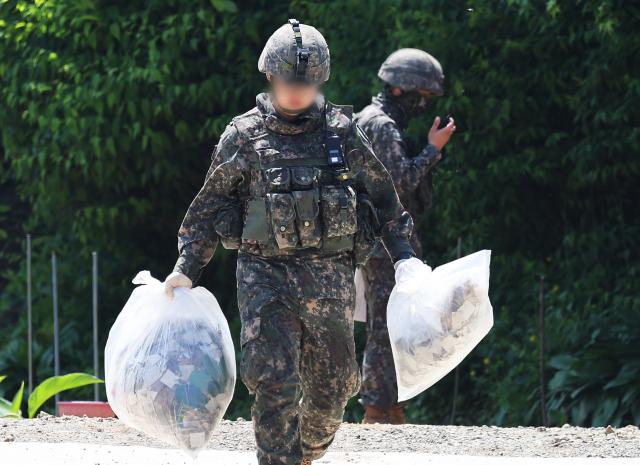
SEOUL, May 29 (AJU PRESS) - Late on Tuesday night, an emergency government text message startled residents in provinces neighboring the Demilitarized Zone (DMZ), particularly foreign nationals with the English phrase of "air raid preliminary warning."
The message was sent to residents in about a dozen areas in Gyeonggi Province at 11:34 p.m. (1434 GMT), and to those in two counties -- Yanggu and Inje – in Gangwon Province around midnight.
While the Korean text message cautioned about unidentified objects suspected to be balloons carrying North Korean propaganda leaflets, the English part raised concerns about a potential air raid.
Generally, such public service announcements (PSAs) warn people about natural disasters such as torrential rains, landslides, earthquakes, and extreme heat. Sometimes, they notify individuals of missing persons within specific areas or military drills that might be mistaken for actual wartime scenarios.
The late-night chaos triggered by the emergency text message stemmed from a public warning guideline established by the Ministry of the Interior and Safety, an official from Gyeonggi Province told Aju Press Wednesday on condition of anonymity.

"Preset manuals exist for various emergency scenarios, and the English term 'air raid preliminary warning' was included for situations involving unidentified aerial objects advancing southward from North Korea," the official explained, adding that the military urgently requested the dissemination of the messages as soon as it detected the balloons.
Some people raised complaints, saying that the provincial government overreacted to balloons just full of propaganda leaflets. However, the official affirmed the adequacy of the warning. While admitting that the term "air raid" might have frightened some, he stressed that "being ready is better than being sorry."
"No one can be sure of the contents of the balloons. They may contain explosives or biochemical substances like anthrax. Attack drones could be camouflaged and flown amidst the balloons. Any eventuality is plausible, and it is our responsibility to alert and prepare for various scenarios," he explained.
"While we may have 'overreacted' in raising public awareness, the intention wasn't to cause distress. But we will amend the current 'confusing' guidelines to prepare for any future incidents and remain committed to safeguarding people's security," the official reassured.
According to the South Korean military, approximately 90 balloons were discovered in Gyeonggi Province and Gangwon Province, with some having descended to the ground while others remained airborne. Some retrieved balloons contained plastic bags filled with garbage and feces. The military is collaborating with law enforcement to ascertain if any balloons are carrying propaganda materials.
This isn't the first instance of Pyongyang dispatching balloons laden with excrement. In 2016, North Korea launched a fleet of balloons containing bags filled with waste.
Copyright ⓒ Aju Press All rights reserved.




